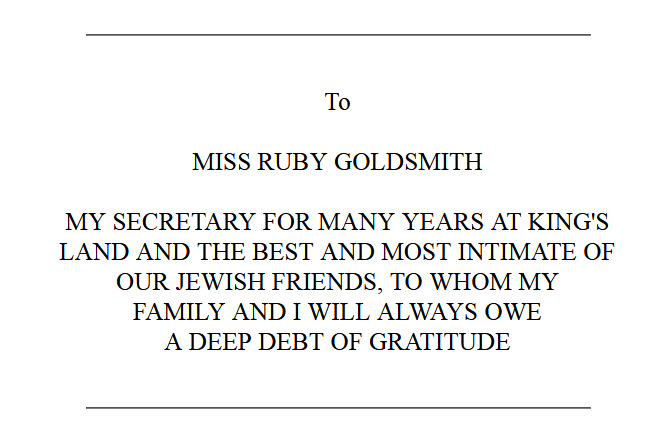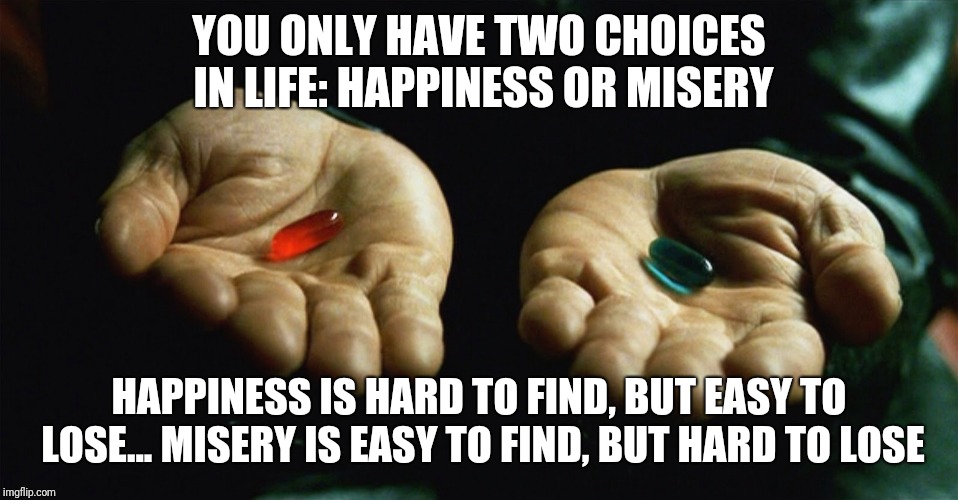Editor’s note: The following comprises the preface and first chapter of The Jews, by Hilaire Belloc (published 1922).

PREFACE
The object of this book is more modest, I fear, than that of much which has appeared upon that vital political matter, the relation between the Jews and the nations around them.
It does not propose any detailed, still less, any positive legal solution to what has become a pressing problem, nor does it pretend to any complete solution of it. It is no more than a suggestion that any attempt to solve this problem ought to follow certain general lines which are essentially different from those attempted in Western Europe during the time immediately preceding our own. I suggest that, if the present generation in both parties to the discussion, the Jews and ourselves, will drop convention and make a principle of discussing the problem in terms of reality, we shall automatically approach a right solution.
We have but to tell the truth in the place of the falsehoods of the last generation. Therefore, of the three principles upon which this essay reposes, the principle that concealment must come to an end seems to me more important than the principle of mutual recognition, or even the principle of mutual respect. For it may well be that my judgment is at fault in the matter of Jewish national consciousness; it may well be that I exaggerate it, and it is certain that one party to a debate cannot be possessed of the full knowledge required for its settlement; the other side must be heard. But neither my judgment nor the judgment of any man can be at fault on the value of truth and the ultimate evil consequences of trying to build upon a lie.
The English reader (less, I think, the American) will often find in my sentences a note that will seem to him fantastic. The quarrel is already acute here in London, but it has not here approached the limits which it has reached long ago elsewhere; and a man accustomed to the quieter air in which all public affairs have, until recently, been debated in this country, may smile at what will seem to him odd and exaggerated fears. To this I would reply that the book has been written not only in the light of English, but of a general, experience. I will bargain that were it put into the hands of a jury chosen from the various nationalities of Europe and the United States it would be found too moderate in its estimate of the peril it postulates. I would further ask the reader, who may not have appreciated how rapidly the peril approaches, to consider the distance traversed in the last few years. It is not very long since a mere discussion of the Jewish question in England was impossible. It is but a few years since the mere admission of it appeared abnormal. The truth is that this question is not one which we open or close at will in any European nation. It is imposed successively upon one nation after another by the force of things. It is this force of things, this necessity for national well-being, and for the warding off of disorder, which has thrust the Jewish question today upon a society still reluctant to consider it and still hoping it may return to its old neglect. It cannot so return.
I will conclude by asking my Jewish, as well as my non-Jewish, readers to observe that I have left out every personal allusion and every element of mere recrimination. I have carefully avoided the mention of particular examples in public life of the friction between the Jews and ourselves and even examples drawn from past history. With these I could often have strengthened my argument, and I would certainly have made my book a great deal more readable. I have left out everything of the kind because, though one can always rouse interest in this way, it excites enmity between the opposing parties. Since my object is to reduce that enmity, which has already become dangerous, I should be insincere indeed if from mere purpose of enlivening this essay I had stooped to exasperate feeling.
I could have made the book far stronger as a piece of polemic and indefinitely more amusing as a piece of record, but I have not written it as a piece of polemic or as a piece of record. I have written it as an attempt at justice.
CHAPTER I: THE THESIS OF THIS BOOK
It is the thesis of this book that the continued presence of the Jewish nation intermixed with other nations alien to it presents a permanent problem of the gravest character: that the wholly different culture, tradition, race and religion of Europe make Europe a permanent antagonist to Israel, and that the recent and rapid intensification of that antagonism gives to the discovery of a solution immediate and highly practical importance.
For if the quarrel is allowed to rise unchecked and to proceed unappeased, we shall come, unexpectedly and soon, upon one of these tragedies which have marked for centuries the relations between this peculiar nation and ourselves.
The Jewish problem is one to which no true parallel can be found, for the historical and social phenomenon which has produced it is unique. It is a problem which cannot be shirked, as the last generation both of Jews and of their hosts attempted to shirk it. It is a problem which cannot be avoided, nor even lessened (as can some social problems), by an healing effect of time: for it is increasing before our eyes. It must be met and dealt with openly and now.
That problem is the problem of reducing or accommodating the strain produced by the presence of an alien body within any organism. The alien body sets up strains, or, to change the metaphor, produces a friction, which is evil both to itself and to the organism which it inhabits. The problem is, how to relax those strains for good and to set things permanently at their ease again.
There are two ways to such a desirable end.
The first is by the elimination of what is alien. The second is by its segregation. There is no other way.
The elimination of an alien body may take three forms. It may take a frankly hostile form—elimination by destruction. It may take a form, also hostile but less hostile—elimination by expulsion. It may take a third form, an amicable one (and that far the most commonly found in the natural process of physical nature and of society)—elimination by absorption; the alien body becomes an indistinguishable part of the organism in which it was originally a source of disturbance and is lost in it. These three ways sum up the first method, the method of elimination.
The second method, if elimination shall prove impossible or undesirable, is that of segregation; and this again may be of two kinds—hostile and amicable. We may segregate the alien element without regard to its own ends or desires: the segregation of it being upon a plan framed solely from the point of view of the organism invaded, and the reduction of the strain or friction it creates effected by the mere cutting of it off from all avenues through which it can affect its host.
But we may also segregate the alien irritant by an action which takes full account of the thing segregated as well as of the organism segregating it, and considers the good of both parties. In this second and amicable policy the word segregation (which has a bad connotation) may be replaced by the word recognition.
This book has been written under the conception that all solutions of the Jewish problem other than this last are either impracticable, or bad in morals, or both.
It is written to advocate a policy wherein the Jews on their side shall openly recognize their wholly separate nationality and we on ours shall equally recognize that separate nationality, treat it without reserve as an alien thing, and respect it as a province of society outside our own.
It is written under the conviction that any attitude which falls short of this policy or is very different from it will now soon breed disaster.
The solution by way of destruction is not only abominable in morals but has proved futile in practice. It has been the constant temptation of angry popular masses in the past, when the Jewish problem has come to a head not once but a thousand times in various parts of our civilization during the last twenty centuries. From the pitiless massacres of Cyrenaica in the second century to the latest murders in the Ukraine that solution has been attempted and has failed. It has invariably left behind it a dreadful inheritance of hatred upon the one side and of shame upon the other. It has been condemned by every man whose judgment is worth considering and especially by the great moral teachers of Christendom. It is, indeed, hardly a policy at all, for it is blind. It is a gesture of mere exasperation and not a final gesture at that.
The second form of elimination—expulsion—though theoretically sustainable (for a community has a right to organize its own life and no aliens therein have a claim to modify that life or to disturb it), is none the less in practice, and as regards this particular problem, only one degree less odious than the first. It means inevitably a mass of individual injustice, as well as common spoliation and every other hardship. It is almost impossible to dissociate it from violence and ill deeds of all kinds. It leaves behind it almost as strong an inheritance, if not of shame on the one side, at any rate of rancour upon the other, as does the first. And what condemns it finally is that it is not, and cannot be, complete.
For it is in the nature of the Jewish problem that this solution is only attempted at moments and in places where the strength of the Jews has declined; and this invariably means their corresponding strength in some other quarter.
A particular society attempting this solution of expulsion may succeed for a time so far as itself is concerned, but that inevitably means the reception of the exiled body by another district, and, sooner or later, the return of the force which it was hoped to be rid of. The greatest historical example of this is, of course, the action of the English. The English alone of all Christian nations did adopt this solution in its entirety. A strong national kingship, a government highly organized for its time, an insular position and a singular unanimity of national purpose promoted the expulsion of the Jews from England at the end of the thirteenth century; for more than three and a half centuries that expulsion was maintained, and England alone of the various divisions of Christendom was in theory free of the alien element and nearly as free in practice as it was in theory.
But, as we all know, in the long run the experiment broke down. The Jews were readmitted in the middle of the seventeenth century, and nowhere have they come to greater strength than in the very nation which attempted this solution of the problem with such drastic thoroughness five hundred years ago. None of the other parallel attempts up and down Europe were of the same thoroughness as the English attempt. Their failure came, therefore, more quickly. But such failure would seem in any case to be inevitable. Quite apart, therefore, from the moral objection which attaches to it, there is the practical experience that a solution is not to be found upon such lines.
Lastly, there is elimination by absorption. This would obviously be the most gentle, as it is the most evident, of all methods. It is further a normal and most usual method of nature herself when a living organism has to deal with disturbance excited by the presence of an alien body. So natural and so obvious is it that it has been taken by many men of excellent judgment upon both sides as a matter of course. It has been taken for granted that if absorption has not taken place in the past it has only been due to an ill-will artificially nourished and maintained against the Jews on our side, or by the unreasoning exclusiveness of the Jews on theirs.
Even to-day, in spite of a vast increase during our own generation, both in the public appreciation of the problem and in its immediate gravity, there are very many men who still regard absorption as the natural end of the affair. These, though dwindling, are still numerous upon the non-Jewish side; upon the other, the Jewish side, they are, I think, a very small body. For I note that even those Jews who think absorption will come, admit it with regret, and certainly the vast majority would insist with pride upon the certain survival of Israel.
But here again I maintain that we have the index of history against us. In point of fact absorption has not taken place. It has had a better chance than any corresponding case can show: ample time in which to work, wide dispersion, constant intermarriage, long periods of tolerant friendship for the Jew, and even at times his ascendancy. If ever there were conditions under which one might imagine that the larger body would absorb the smaller, they were those of Christendom acting intimately for centuries, in relation with Jewry. Nation after nation has absorbed larger, intensely hostile minorities: the Irish, their successive invaders; the British, the pirates of the fifth and eighth centuries and the French of three centuries more; the northern Gauls, their auxiliaries; the Italians, the Lombards; the Greeks, the Slav; the Dacian has absorbed even the Mongol: but the Jew has remained intact.
However we explain this—mystically or in whatever other fashion—we cannot deny its truth. It is true of the Jews, and of the Jews alone, that they alone have maintained, whether through the special action of Providence or through some general biological or social law of which we are ignorant, an unfailing entity and an equally unfailing differentiation between themselves and the society through which they ceaselessly move.
It is not true that conditions in the past differed from present conditions sufficiently to account for so strange a story. There have been generations and even centuries (not co-incident indeed throughout the world, but applying now to one country, now to another) where every opportunity for absorption existed; yet that absorption has never taken place. There was every chance in Spain at one moment, in Poland at another, but there was the best chance of all in the short but brilliant period of Liberal policy which has dominated Western Europe during the last three generations. That policy has had the fullest play: it has left the Jews not only unabsorbed, but more differentiated than ever, and the political problem they present more insistent by far than it was a century ago.
The thing might have come where there was a chaos of peoples, as in pagan Alexandria in the four centuries from 200 B.C. to 200 A.D., or in modern New York. It might have come where there was a particularly friendly attitude, as in mediaeval Poland or modern England. It might even have come, paradoxically, through the very persecution and strain of times and places where the Jews suffered the most hostile treatment: for their absorption might have been achieved under pressure though it had failed to be achieved under attraction. As a fact it has never come. It has never proved possible. The continuous absorption of outlying fractions, a process continually going on wherever the Jewish nation is present, has not affected the mass of the problem at all. The body as a whole has remained separate, differentiated, with a strong identity of its own under all conditions and in all places, and the a priori reasoning, by which men come to think this solution reasonable, is nullified by an experience apparent throughout history. That experience is wholly against any such solution. It cannot be.
There remains, then, only the solution of segregation; a word which (I repeat) I use in a completely neutral manner though it has unhappily obtained in this and other issues a bad connotation.
Segregation, as I have said, may be of two kinds. It may be hostile, a sort of static expulsion: a putting aside of the alien body without regard to that body’s needs, desires or claims; the building of a fence round it, as it were, solely with the object of defending the organism which reacts against invasion, and suffers from the presence within it of something different from itself.
Or it may take an amicable form and may be a mutual arrangement: a recognition, with mutual advantage, of a reality which is unavoidable by either party.
The first of these apparent solutions has been attempted over and over again throughout history. It has had long periods of partial success, but never any period of complete success; for it has invariably left behind it a sense of injustice upon the Jewish side and of moral ill-ease upon the other.
There remains, I take it, no practical or permanent solution but the last. It is to this conclusion that my essay is meant to lead. If the Jewish nation comes to express its own pride and patriotism openly, and equally openly to admit the necessary limitations imposed by that expression; if we on our side frankly accept the presence of this nation as a thing utterly different from ourselves, but with just as good a right to existence as we have; if we renounce our pretences in the matter; if we talk of and recognize the Jewish people freely and without fear as a separate body; if upon both sides the realities of the situation are admitted, with the consequent and necessary definitions which those realities imply, we shall have peace.
The advantage both parties—the small but intense Jewish minority, the great non-Jewish majority in the midst of which that minority acts—would discover in such an arrangement is manifest. If it could be maintained—as I think it could be maintained—the problem would be permanently solved. At any rate, if it cannot be solved in that way it certainly cannot be solved in any other, and if we do not get peace by this avenue, then we are doomed to the perpetual recurrence of those persecutions which have marred the history of Europe since the first consolidation of the Roman Empire.
It has been a series of cycles invariably following the same steps. The Jew comes to an alien society, at first in small numbers. He thrives. His presence is not resented. He is rather treated as a friend. Whether from mere contrast in type—what I have called “friction”—or from some apparent divergence between his objects and those of his hosts, or through his increasing numbers, he creates (or discovers) a growing animosity. He resents it. He opposes his hosts. They call themselves masters in their own house. The Jew resists their claim. It comes to violence.
It is always the same miserable sequence. First a welcome; then a growing, half-conscious ill-ease; next a culmination in acute ill-ease; lastly catastrophe and disaster; insult, persecution, even massacre, the exiles flying from the place of persecution into a new district where the Jew is hardly known, where the problem has never existed or has been forgotten. He meets again with the largest hospitality. There follows here also, after a period of amicable interfusion, a growing, half-conscious ill-ease, which next becomes acute and leads to new explosions, and so on, in a fatal round.
If we are to stop that wheel from its perpetual and tragic turning, there seems to be no method save that for which I plead.
The opposition to it is diverse and formidable but can everywhere be reduced upon analysis to some form of falsehood. This falsehood takes the shape of denying the existence of the problem, of remaining silent upon it, or of pretending friendly emotions in public commerce which are belied by every phrase and gesture admitted in private. Or it takes the shape of defining the problem in false terms, in proclaiming it essentially religious whereas it is essentially national. Worst of all, it may be that very modern kind of falsehood, a statement of the truth accompanied by a statement of its contradiction, like the precious modern lie that one can be a patriot and at the same time international. In the case of the Jews, this particular modern lie takes the shape of admitting that they are wholly alien to us and different from us, of talking of them as such and even writing of them as such, and yet, in another connection, talking and writing of them as though no such violent contrast were present. That pretence of reconciling contradictions is the lie in the soul. Its punishment is immediate, for those who indulge it are blinded.
All opposition that ever I have met to the solution here proposed is an opposition sprung from the spirit of untruth; and if there were no other argument in favour of an honest and moral settlement of the dispute, the one argument based on Truth would, I think, be sufficient. It is a social truth that there is a Jewish nation, alien to us and therefore irritant. It is a moral truth that expulsion and worse are remedies to be avoided. It is an historical truth that those solutions have always ultimately failed; the recognition of those three truths alone will set us right.
Such is the main thesis of this book, but it needs an addition if its full spirit is to be apprehended, and that addition I have attempted to express in the last chapter.
If the solution I propose be the right solution, it yet remains to be determined whether it should first take the form of new laws from which a new spirit may be expected to grow, or first take the form of a new spirit and practice from which new laws shall spring. The order is of essential importance; for to mistake it, to reverse the true sequence of cause and effect, is the prime cause of failure in all social reform.
As will be seen by those who have the patience to read to the end of my book, I have, in its last pages, pleaded strongly for the second policy. It would be impossible to frame in our society, and in face of the rapidly rising tide of antagonism against the Jews, new laws that would not lead to injustice. But if it be possible to create an atmosphere wherein the Jews are spoken of openly, and they in their turn admit, define, and accept the consequences of a separate nationality in our midst, then, such a spirit once established, laws and regulations consonant to it will naturally follow.
But I am convinced that the reversing of this process would only lead first to confusion and next to disaster, both for Israel and for ourselves.









